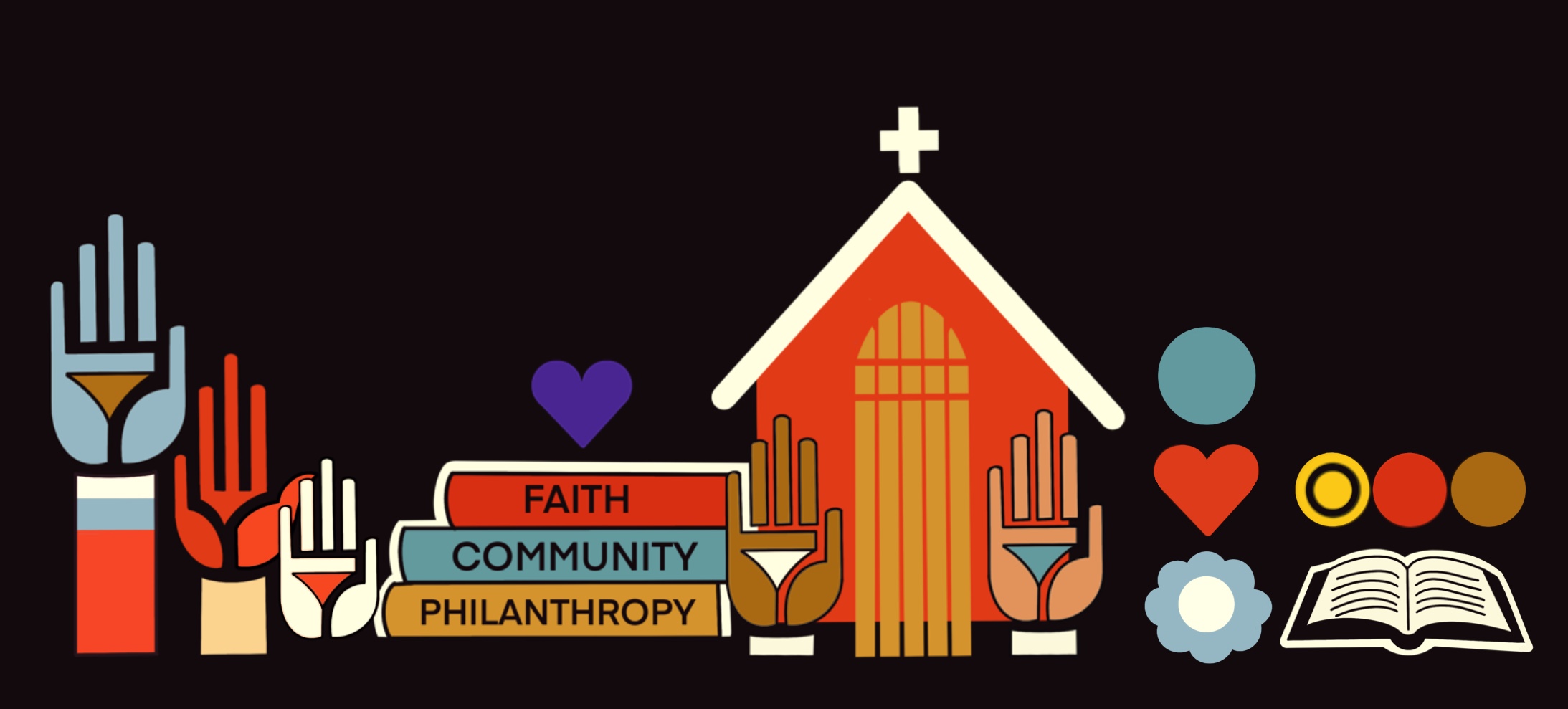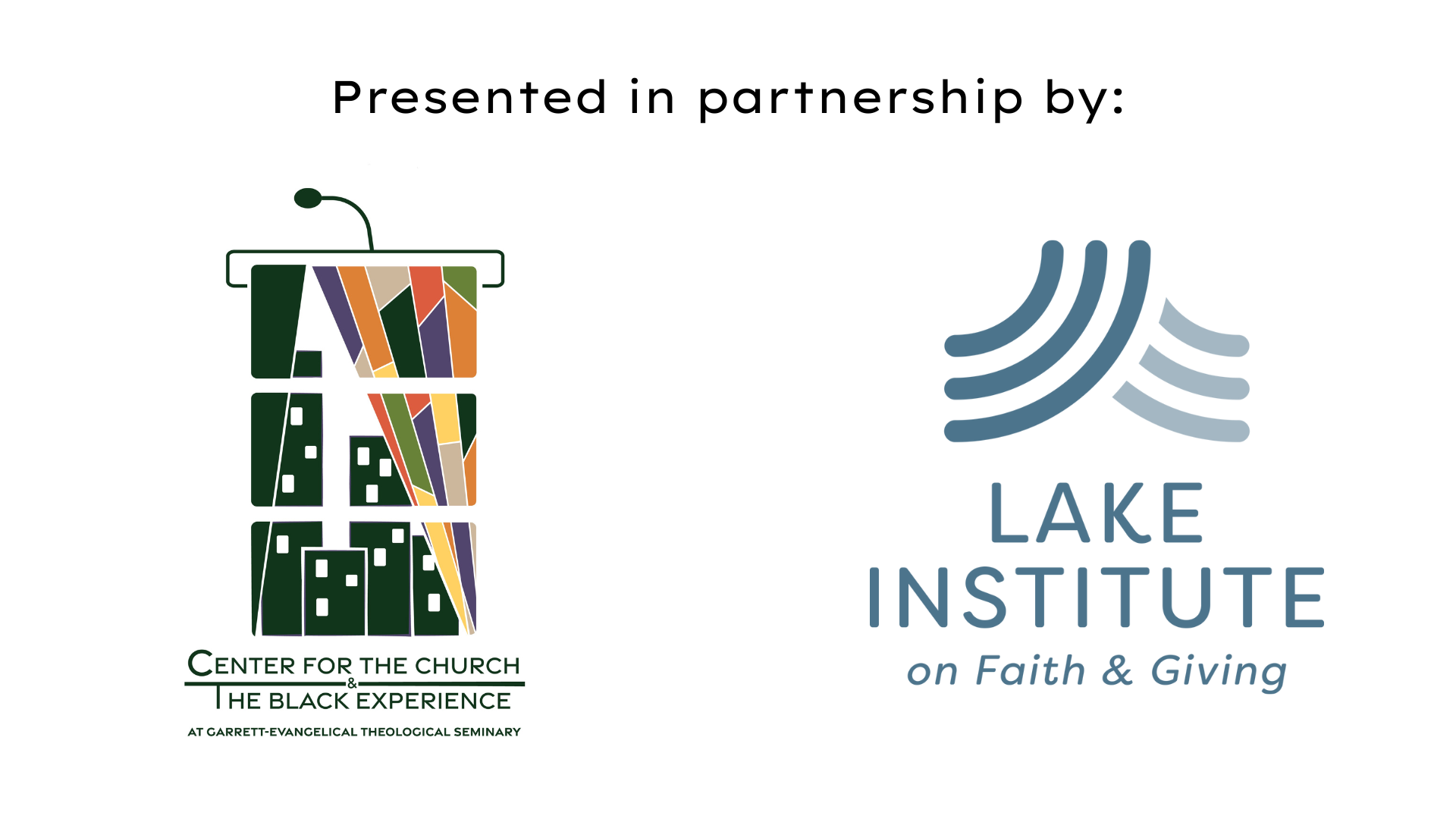Reflections on the 2025 Symposium on Philanthropy and the Black Church
Reflections on the 2025 Symposium on Philanthropy and the Black Church
The 2025 Symposium on Philanthropy and the Black Church, co-hosted by Lake Institute on Faith & Giving and the Center for the Church and the Black Experience at Garrett-Evangelical Theological Seminary, brought together leaders from across faith, philanthropy, healthcare, finance, and higher education in Indianapolis. Over the course of two days, on April 10 and 11, participants explored the potential for Black churches and philanthropic organizations to collaborate for greater social impact. Through dynamic discussions and shared stories, attendees envisioned a future of partnership and community-driven change.
A few participants share their reflections below—read their insights and consider how these ideas might inspire action in your own work and community.
Kia Williams, Founder of Relevant Solutions Group
There is a sacred kind of joy that rises when you gather with kindred spirits—those called to the intersection of faith, giving, and the Black Church. The Lake Institute’s Symposium on Philanthropy and the Black Church is more than an event; it’s a homecoming for the heart, mind, and spirit. When I first attended in 2023, I felt it. This year, I felt it even more. As the urgency of our work intensifies, I found myself held—in affirmation, in gratitude, in purpose. I left not just inspired but rooted and renewed.
To sit among those who understand—truly understand—the weight and the wonder of this work forges a unique kind of connection. Whether it’s an affirming nod that requires no words, a lecture that doubles as a soul-stirring sermon, or the presentation of cutting-edge data to help further inform our work, this gathering is fuel for both our collective and personal missions.
The speakers and attendees reflect the many facets of this work, offering a wonderful balance of familiar faces and new comrades in arms. I was honored to share about Our Philanthropy—a sacred convening of Black Christians of wealth, created to reimagine, reclaim, and reconcile our giving and to mobilize urgent, culturally competent philanthropy with discretion, dignity, and power.
I leave this space grateful—grateful for reconnection, for new insight, and for a community that reminds me this calling is not mine to carry alone. We are many, moving with shared intention. And we carry this work forward—together.
Sylvester Jones, Program Officer at the Fetzer Institute
While I fully enjoyed the entire two-day Symposium, the most valuable experience for me were the “Stories of Success.” In my view, the “Stories of Success” set the tone for a spiritually enriching experience. In addition to describing what is possible, they illustrated what has and is being done to preserve and strengthen the Black Church. In my view, the Black Church is the original ‘social justice institution’ in the Black Community. Historically, the Black Church served as a spiritual convening space and social anchor for the African American community. For me, the “Stories of Success” validated this hypothesis, and emphasized why the Black Church can and should return to its notably important position in society. More importantly, the “Stories of Success” reminded Symposium attendees that philanthropy can and should work with intention to strengthen the Black Church, because it is critically important to the past, present, and the future of the Black Community’s wellbeing.
As I reflect on the two-day Symposium, I am convinced that the formal presentations, and information discussions will serve as a launching pad for something. While I am not certain what will be created or catalyzed, the Holy Spirit tells me that it will be something. With that, my lingering questions are:
- What will be catalyzed as a result of the Symposium?
- How do you capture and feature it at a future Symposium?
- How can it be leveraged and/or replicated in other areas of the world?
These questions are important to me because I am convinced that the Black Community is extremely resourceful, and when inspired to create change, she will meet the moment and create something transformative and impactful that can and should be replicated. It would be nice to know what is created, as a result of the Symposium, so that it can be featured and scaled.
As previously stated, I am convinced that the Black Church is the original ‘social justice’ institution in the Black Community, therefore, if philanthropy is serious about improving the wellbeing for residents of the Black Community, the Black Church should be considered a critical institution to partner with. In addition to being an anchor institution, the Black Church serves as a beacon of hope, pride, and inspiration. Resourcing and strengthening the Black Church can result in measurable and sustainable change for the Black Community.
Dr. Jennifer Leath, Pastor of Tanner-Price AME Church and Associate Professor at Queen’s University
Educated and informed people of African descent in the United States with integrity have understandable anxieties about ill-gotten gains from slavery and colonialism, and their contemporary exploitative tributaries – especially when lasting spoils are denied while flaunted in plain sight and dangled as bite-sized carrots for those who will chase the bait in silence. Many philanthropists do not wish to be questioned about the layered sources of their wealth and, understandably, avoid proximity with those who might discern and/or expose a dissonance between the ways their wealth was acquired and their consequent generosity. These anxieties haunt authentic conversations and relationship-building efforts between Black churches and philanthropists. The 2025 Symposium on Philanthropy and the Black Church was a reminder:
- For philanthropists to give with comfort and in peace, they must trust the motivation, intent, capacity, and viability of the people and projects in which they invest.
- For Black churches to offer the fruits of their survivalist creativity in exchange for amplifying philanthropic resources with comfort and in peace, they (and their ideal representatives) must trust that they are not unwittingly receiving thirty pieces of silver to bury their prophets, they will not be treated like charity cases, they will not be disproportionately surveilled, and that funders are discerning (and genuinely interested in working with) honest actors whose loyalty is calibrated to optimize transformative service to the most vulnerable (within the parameters of the agreed upon uses of gifts given).
Such trust on the part of philanthropists and Black churches must be cultivated; at best, this cultivation begins with honesty about the haunting anxieties. These anxieties necessitate critical, deliberate, ongoing, and constructive conversations and relationship-building between philanthropists and Black churches. Most valuably, the Symposium carefully held space for these anxieties. Insofar as the Symposium convened Black church and philanthropic intermediaries, facilitating new connections, open communication, and constructive dialogue, the Symposium tilled the soil for a new harvest rooted in truer trust. Digging in, we might reflect on these questions:
- What is the comparative value of (and relationship between) giving by choice, giving by force, and giving out of (perceived) necessity?
- What are the shared commons that Black churches and philanthropists alike are interested in building?
- How can we nurture, protect, and sustain moral, free, and faithful givers and worthy investments within Black churches and among philanthropists?
- How do we expand a mutually beneficial trust based on further addressing (and not avoiding) our lingering anxieties?
Subscribe
Insights is a bi-weekly e-newsletter for the religious community and fundraisers of faith-based organizations that provides:
- Reflections on important developments in the field of faith and giving
- Recommended books, studies and articles
- Upcoming Lake Institute events


